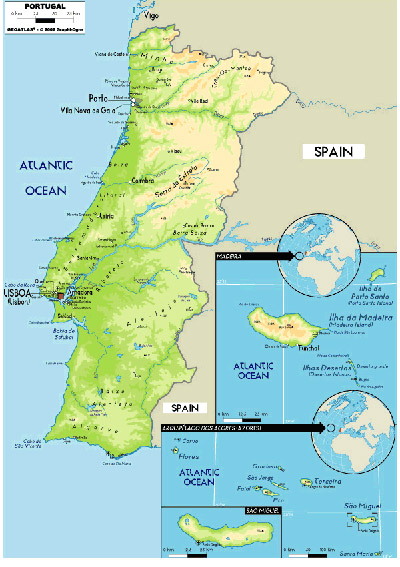Alentejo comes from the Arabic "alem Tejo" meaning "beyond the Tagus". Lying between Lisbon and the Spanish border, Alentejo is the whole south-eastern corner of Portugal. The Alentejo area is commonly known as the "bread basket" of Portugal, a fitting title for this vast open countryside with undulating plains and rich fertile soil. The major towns are mainly reliant on agriculture, livestock and wood. Crops include grain, sunflower, safflower, fruit, vegetables, olives, wines, cork and eucalyptus while lambs, pigs and kids are numerous. Topographically the countryside varies considerably, from the open rolling plains of the south to the granite hills that border Spain in the north-east. To feed the water needs of this considerable area a number of public dams have been constructed. In the heart of the productive agriculture zone of Moura, there is at present under construction the largest so far and is claimed it will have when finished one of the largest water surface areas in Europe. The capital of the Baixa Alentejo is Beja, and the capital of the Alta Alentejo is Évora.
